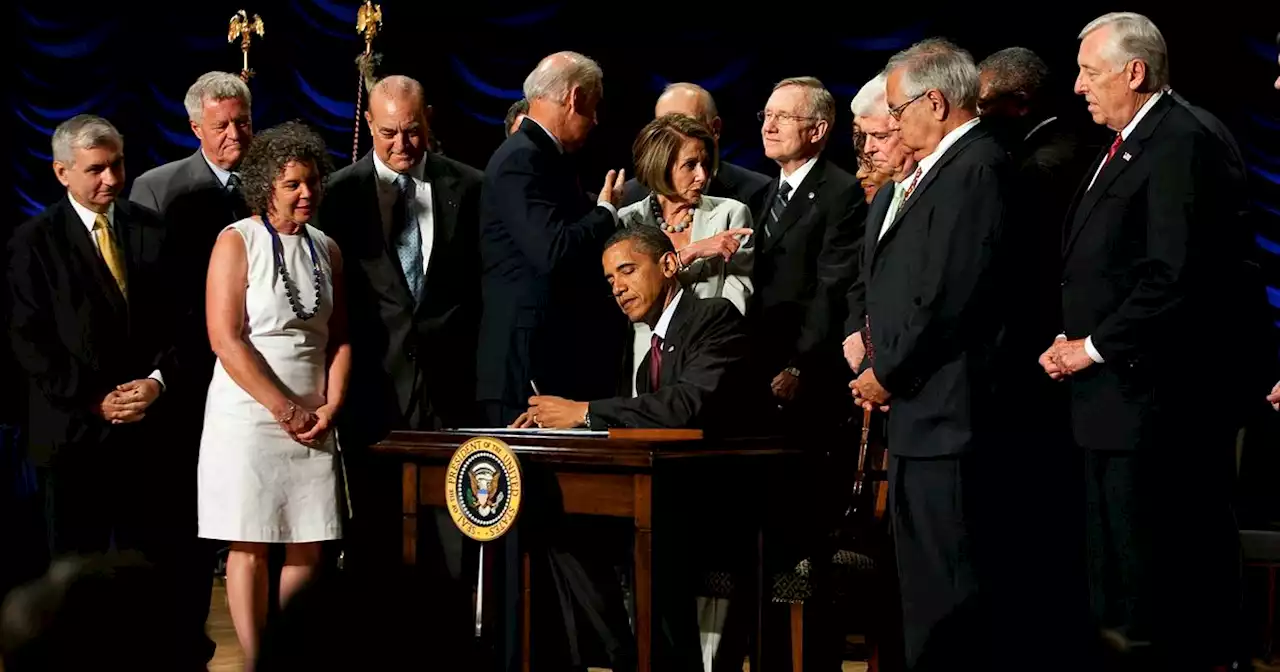Zions Bancorporation was one of several banks that lobbied against the Dodd-Frank regulations enacted in 2010.
President Barack Obama signs the Dodd-Frank Wall Street Reform and Consumer Protection Act at the Ronald Reagan Building in Washington on July 21, 2010. Officials with Signature and Silicon Valley banks, which regulators seized in recent days, pushed for looser financial requirements for midsize banks.In the spring of 2018, President Donald Trump signed a law that watered down the landmark regulatory reform act that his predecessor had enacted following the global financial crisis.
Now Signature is dead — a victim of a fast-moving crisis that has revealed the extent to which the banking industry and other opponents of government oversight have chipped away at the robust regulatory protections that were erected after the 2008 financial meltdown. Much of the post-2008 regulatory infrastructure remains in place, and the industry is by most accounts on much sounder financial footing than it was 15 years ago.
And while regional banks managed to convince lawmakers that they were not systemically important back in 2018, regulators have apparently concluded otherwise in recent days. They agreed to rescue depositors at Signature and Silicon Valley Bank for the sake of safeguarding the broader financial system — a powerful reminder of how fears about a couple of banks, even if they are not America’s largest, can quickly infect an entire industry.
From the moment the law went into effect, the banking industry sought to rescind or at least relax it. Its argument was that onerous regulations constrained the industry’s ability to lend money to creditworthy customers. “Changing the tenor of supervision will probably actually be the biggest part of what it is that I do,” Randal K. Quarles, who was in charge of bank regulation at the Federal Reserve, said in 2017.
Harris Simmons, the CEO of Zions Bancorporation in Utah, was another trying to get out from under what he viewed as onerous federal supervision. He said that regional banks like his posed little, if any, threat to financial stability and that tough regulations were crimping their ability to serve customers.
In the interview Monday, Frank said the legislation’s goal had been to focus on the country’s very largest banks and not to saddle smaller institutions with stringent rules or oversight.
United States Latest News, United States Headlines
Similar News:You can also read news stories similar to this one that we have collected from other news sources.
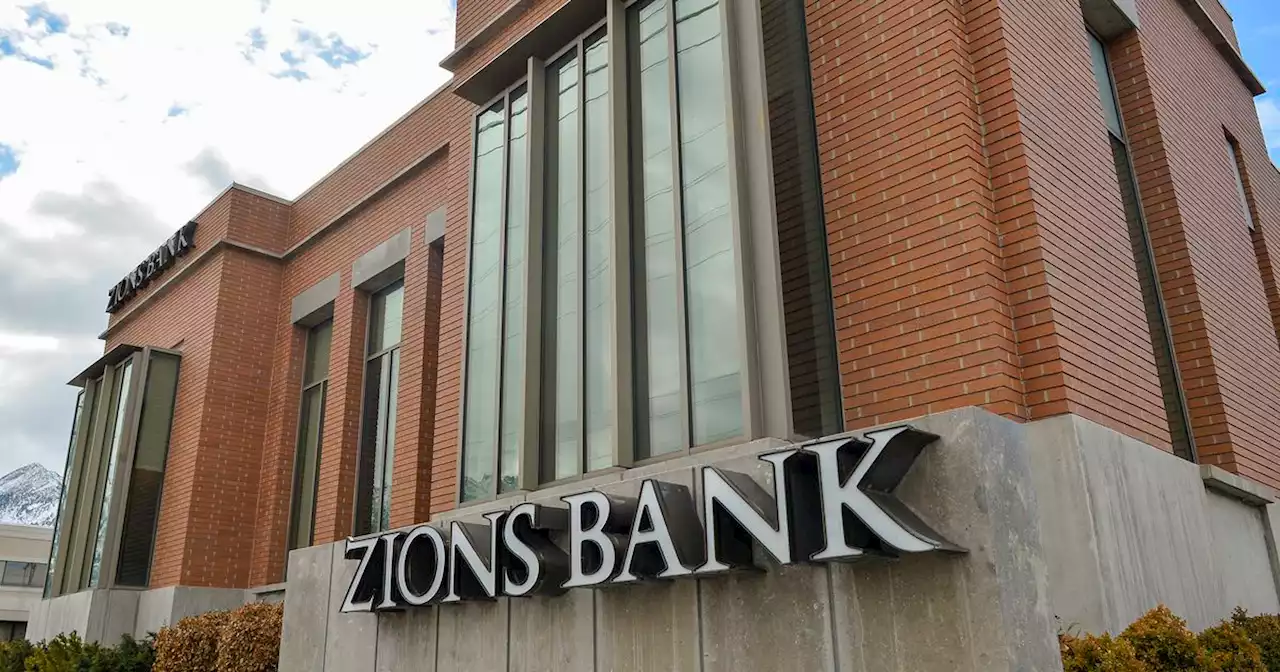 Zions’ stock plummets in wake of SVB collapse, but here’s why Utah bank’s CEO says your money is safeZions’ share price fell 44.1% early Monday as trading on the NASDAQ opened, declining from $40.35 to $22.55 before moderating those losses to about 26% by midday.
Zions’ stock plummets in wake of SVB collapse, but here’s why Utah bank’s CEO says your money is safeZions’ share price fell 44.1% early Monday as trading on the NASDAQ opened, declining from $40.35 to $22.55 before moderating those losses to about 26% by midday.
Read more »
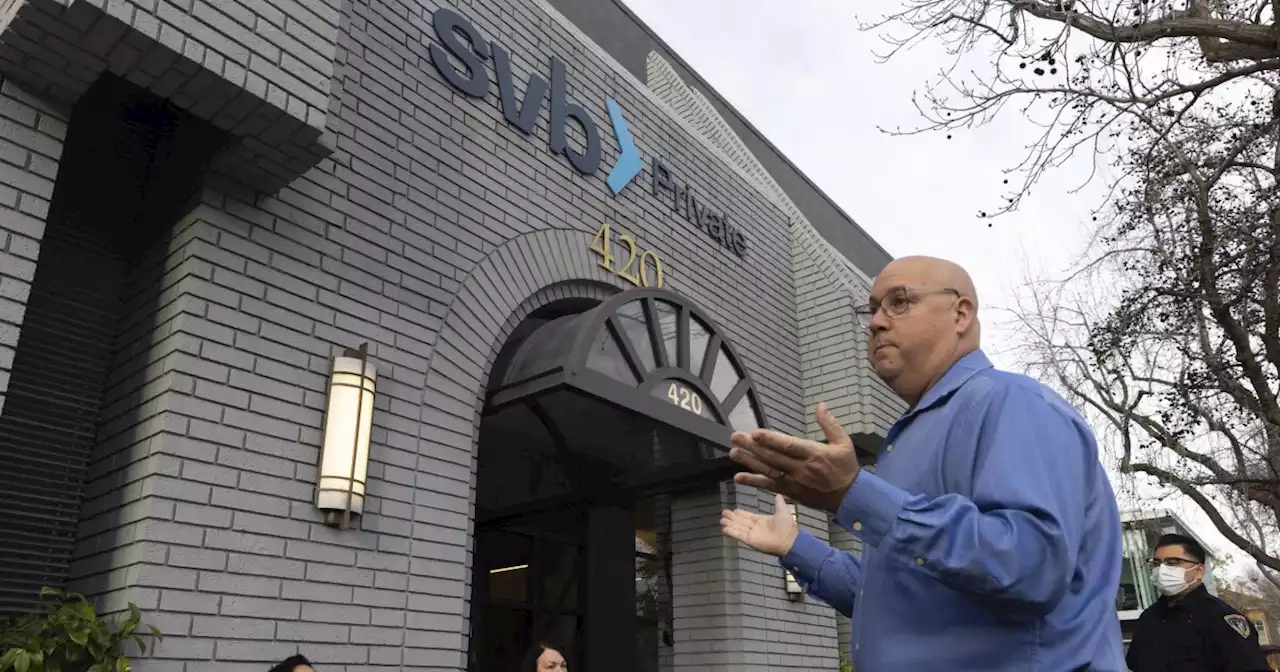 SVB collapse: White House promises 'this is not 2008'Despite the collapse of two banks and a depositor bailout, another Great Recession isn't on the way, the White House said Monday.
SVB collapse: White House promises 'this is not 2008'Despite the collapse of two banks and a depositor bailout, another Great Recession isn't on the way, the White House said Monday.
Read more »
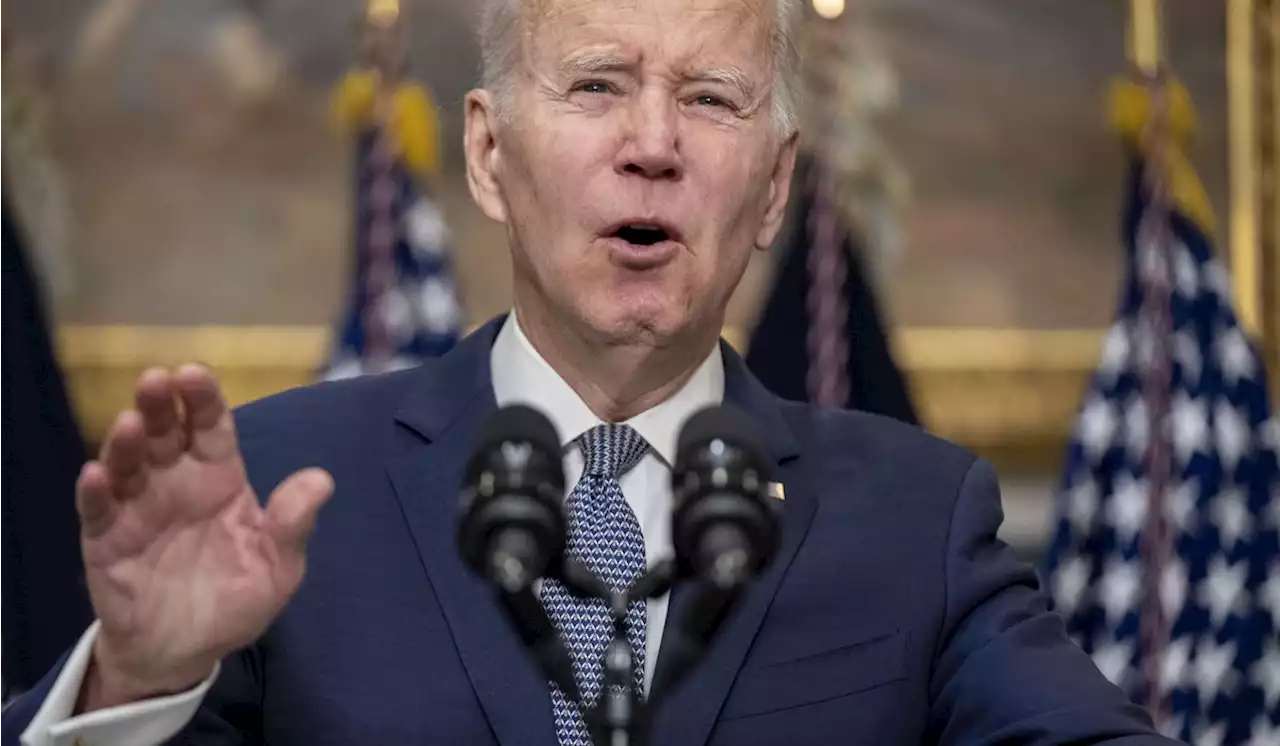 Biden defends ‘safe’ banking system amid biggest collapses since 2008President Biden on Monday defended the U.S. banking system after regulators scrambled to prevent the collapses of Silicon Valley Bank and Signature Bank from spiraling into a massive financial crisis.
Biden defends ‘safe’ banking system amid biggest collapses since 2008President Biden on Monday defended the U.S. banking system after regulators scrambled to prevent the collapses of Silicon Valley Bank and Signature Bank from spiraling into a massive financial crisis.
Read more »
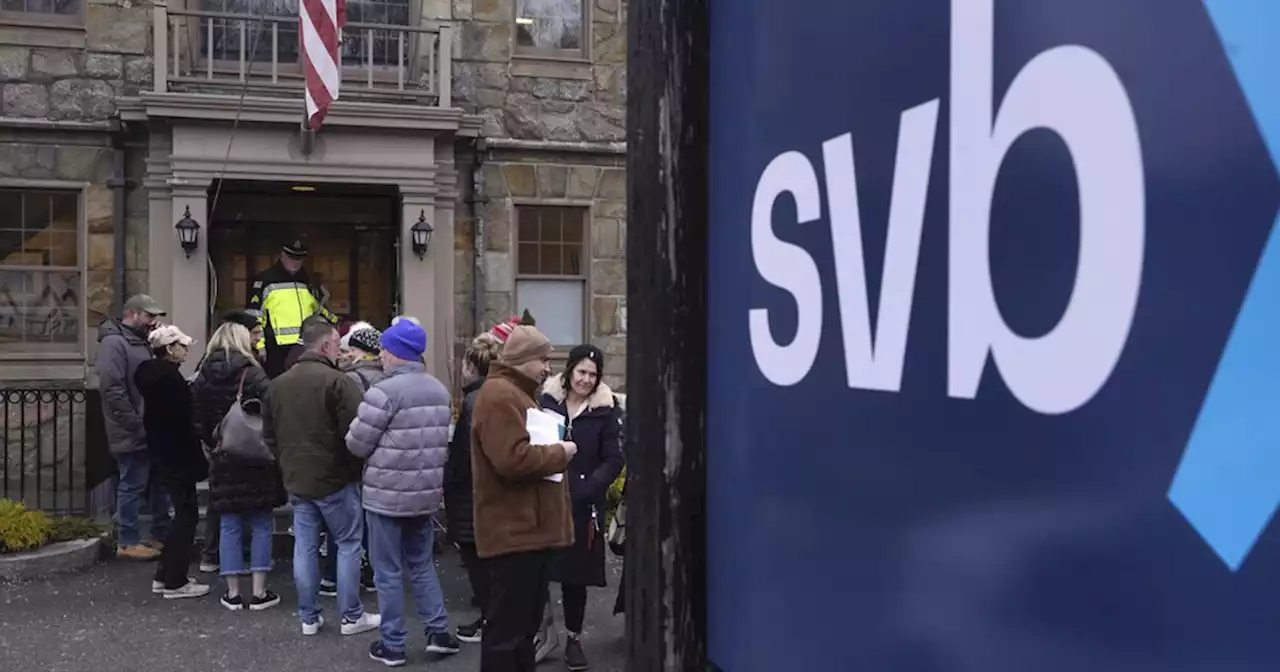 SVB collapse: Bank failures raise odds of 2008-style recessionThe collapse of Silicon Valley Bank has led to a surge in signs that a recession is likely.
SVB collapse: Bank failures raise odds of 2008-style recessionThe collapse of Silicon Valley Bank has led to a surge in signs that a recession is likely.
Read more »
